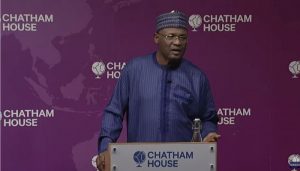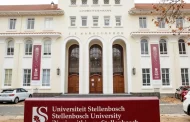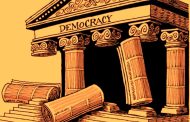By Habu Mohammed
The Context
Until January 5th, 2023, all I knew about Cotonou was that it is the capital city of Benin Republic from where ‘Cotonou’ or “Tokunbo” cars and limousines are imported into the Nigerian market and sold by dealers. For, even as famous as the name of the headquarters of used cars in West Africa, imported mainly from Europe and America, I never thought I would one day visit there on an official assignment. This is notwithstanding that all the cars I have used are “tourists’ cars”. And even if the possibility of being there ever crossed my mind, it never was about going there on official assignment, not to talk of Election Observation. I could not have ruled out attending a conference anywhere but not going to Benin Republic for election observation.
Little did my mind go to a ‘new year’ gift that turned out to be a about going to Benin Republic, a trip that has been an excellent experience for a political scientist. What a paradox that I was not in Benin Republic to buy a ‘tourist’ car for which we know it more in Nigeria nor even to attend a conference but for a West African Sub-region assignment. I was there on the invitation of the ECOWAS Commission, which invited 40 Observers from fifteen member states to partake in the Commission’s Election Observer Mission to the Republic scheduled from January 5th to 11th, 2023.
The exercise was in line with the 2002 ECOWAS Supplementary Protocol on Democracy and Good Governance. I was among those invited to represent Nigeria’s Civil Society sector as scholar-activist. I saw the invitation as one of the legacies of my two-decade research interest on civil society and democratization in Africa and engagement with CSOs as a resource person. After confirming my availability for the assignment on December 22nd, 2022, an e-flight ticket was sent to me through one of the youngest and highly spirited technical staff of the Democracy and Governance Unit of the Commission, Mr. Luther Barou.

The author at work as an ECOWAS election observer
I left Nigeria for Benin after a brief transit in the Gnassingbe Eyadema International Airport in Lome, Togo on January 5th, 2023. It was a short journey because my other previous air travels took long hours, particularly the trip to the USA in 2003 from Nnamdi Azikiwe International Airport through Heathrow enroute Dulles international Airport in Washington and finally to California. The last was from Kano to Israel via Istanbul, Turkey and Kano to South Africa via Ethiopia in 2015 and 2018, respectively. From Abuja to Lome was only 40 minutes and from Lome to Benin less than the half time in a football match. In all, we spent an average of an hour and ten minutes in the air to go to Benin. Specifically, I was quite astonished when the pilot of the Airline from Lome to Cotonou announced to passengers on board that our flight was only 25 minutes! We reached Benin at exactly 3:20 pm. Buses were already at the Airport waiting for our arrival and no sooner we arrived than we were taken to Azalaī Hotel de le Plage, one of the 5-star hotels in Cotonou where observers were accommodated and which also served as the Secretariat of the ECOWAS Mission in the country. The staff of the secretariat are marvelous. They were well organised and highly motivated to attend to Observers in a clockwork manner. Their coordination of the activities of the Mission in Benin was superb.
Benin Republic and the January 8, 2022 Parliamentary Election
Benin Republic is a Francophone country with a total population of 13 million inhabitants. The country has twelve departments akin to states in Nigeria as follows: Alibori, Atacora, Atlanrique, Borgu, Collines, Couffo, Donga, Littoral, Mono, Oueme, Plateau and Zaou and 77 communes (LGAs). The constitution of the Republic has been enforced since December 11, 1990 and was amended in November 2019. Seven (7) political parties registered by the Election Management Body (EMB), the Commission Electorale Nationale Autonome (CENA) featured their candidates for the parliamentary election that took place on January 8th, 2023. This is in sharp contrast to what obtained during the last parliamentary elections in the country held in 2019 in which opposition parties were barred from participating due to tight election rules. The outcome of the election was totally an abnegation of democracy, culminating in the dominance of President Patrice Taylon. In contrast, the January 8th, 2023 polls were contested by seven political parties after a four-year absence in the hollow chamber of the parliament. These are: Moele-Benin, Force Cauris Paour un Benin Emergent (FCBE), Les Democrates (LD), Union Progressiste Le Renouveau, Union Democrate Pur un Bėnin nouvea (UDBN), Movement Popularire De Liberation (MPL) and Bloc Republican.
The next day after our arrival, there was a briefing for observers, a workshop-like meeting where we were welcomed by the Commissioner for Political Affairs at the ECOWAS Commission in Abuja and also briefed by the Head of the Mission, His Excellency Raimundo Pereira, the former President of the Republic of Guinea-Bissau. Thereafter, a briefing session with the Election Observation Mission (EOM) was held. It was a lively interactive section where observers were trained on the use of the instruments to be deployed for the election observation. My assignment was under the Election Observation Team Six (6), which covered four (4) Communes in Littoral (Cotonou) Department as follows: Sainte-Rita, Fafadji, Kauhounou and Gbegamey. The Team comprised a Senegalese Wone Ibrahima, Hon. Kwasi Ameyaw and I as members. The assignment was handled by two members of the team, Ibrahima and Mohammed, because Ameyaw could not make it to the country.
Therefore, the two-member team was led by my humble self and its assignment started on Friday 7th January, 2023 with visits to the offices of the Divisional Police Officers in Charge of each Department and the Electoral Offices in each of the four areas of its mandate. We observed the sorting out and distribution of Election materials by different local election administration offices to polling stations. The exercise was conducted with little, if any, hitches as election materials were transported to various polling centres by busy election officers, who, despite their hectic assignment, were able to listen to us attentively and responded to some questions we posed pertaining to the preparations of the field duties next day. It was really a very encouraging start to see election materials reaching out to various election destination centres before late in the evening on the eve of the election day. On the day of the team’s assignment, our team was at Agbonjedu, the first polling station, at 7.00am, to observe the opening of the exercise. Thereafter, we visited ten other polling stations and observed the election process in each. We observed that the general atmosphere of the start and conduct of the legislative elections held on the 8th January, 2023 was generally peaceful and orderly. Voters were seen at various polling stations early in the morning to exercise their civic mandate without let or hindrance. Their conduct was civilized and enthusiasm generally high. Although voting started late in some polling stations, it was nonetheless generally devoid of violence or commotion.
The security agents at various polling centres conducted themselves professionally. They were apolitical and did not harass or molest anybody entering or leaving polling units. The support they gave was really responsible for the orderliness observed in all the polling stations. This is very encouraging in the sense that Beninese Police complied with the African Charter on Democracy, Elections and Governance (Article 4). Therefore, there was nothing like intimidating voters or harassing party agents or electoral officers.
The environment of the polling stations was conducive for the conduct of the elections. Required information for voters was pasted on the walls of classrooms and offices. Therefore, voters did not find it difficult to trace their names on the voters register before taking their turn for voting. Electricity supply to the polling areas and the classrooms where the elections were conducted was excellent. There was no power failure before, during and after the elections. There was no incident of vote buying by any political party or its agents before or during the time of voting unless if it was so secretively done far away from the observatory. Results were openly counted in the presence of political party agents and the observer team of the ECOWAS by the Presiding Officers of each polling stations. The elections saw the Benin’s opposition Democrats return to parliament, winning 28 seats, while the Republican Bloc (BR) and Progress Union for Renewal (UP-R) parties allied with Taylon together won 81 seats in elections to the 109-member Assembly.
One grey area that requires attention is the need to increase the privacy of the electorate through the provision of polling booths that cover how a voter thumb prints a ballot paper. Available wooden booths at all the polling stations were either not used by voters because they were not cubicles or people were not enlightened about the importance of such facilities in safeguarding electoral integrity by the relevant local and governmental authorities.

Prof Mahmood Yakubu, Chairman of Nigeria’s election management body – INEC – who has been taking lessons from the EU, US, Chatham House and all other claimant training centres on electoral democracy, is set to display, come February 2023
What lessons for Nigeria in February 2023?
Nigeria is a few weeks ahead of the country’s general elections. I believe there are some lessons for Nigeria to learn from Benin Republic. Although the election observed in Benin was legislative and, in comparative terms, Nigeria’s electoral geography and population are mightier than any of the 15 ECOWAS member states, one can still figure out areas of importance for Nigeria to learn from. The exercise has shown that cut-throat competition for power had no space in the political process of Benin because the motivating factor to contest for a seat in the parliament was not getting rich-quick but to serve. Therefore, the background to the election was peaceful and the voting process devoid of the acrimonious opposition politics we know in Nigeria. In contrast, the atmosphere in Nigeria is different, as politics is bitter because the stakes are too high as for political actors to be permanently tempted to go the extra mile to blackmail contenders or frustrate the electoral process through dubious acts like purchasing and wasting voters’ cards. Also, in Nigeria, party thugs and miscreants are found normally around polling centres campaigning or even bribing voters in return for their votes. The Benin experience has shown a remarkable maturity of political culture as they religiously obeyed electoral laws. Voters left the vicinity of the polling stations after casting their votes, leaving only party agents, election officials and observers in the collation and counting of results. Disagreement or rejecting results during or after counting was absent in polling units.
One major issue of considerable importance to electoral integrity is the participation of local and international observers. The people of Benin are very keen to serve as the watchdogs of their democratic process, which has been on course since 1991. Although many CSOs boycotted the Presidential election held in 2021, there has been an increase in voters’ confidence and citizens’ participation, as local election monitors volunteered to monitor the election at various polling stations. Similarly, although the election did not start early in some places, the Election Monitoring Body (EMB) did a very good job to start voting at 8:00am in most of the polling stations. There were less logistic challenges in transporting election materials to various polling stations and units. However, unlike in Nigeria where only public places like schools are designated as polling units, some private buildings were also used for the same purposes in Benin. This is a misnomer, as far as the election is concerned. It should be noted that, like in Nigeria, tactile ballots were not provided to physically challenged voters. This is one area where most African countries are found lacking in their electoral processes. Despite assurances by Nigeria’s EMB, the complaints of the affected social group have not been duly addressed.
Conclusion
By and large, it is enriching for a political scientist to experience the conduct of election in other countries. It pays to be in a political laboratory outside your country because you will appreciate your country the more. Considering the fact that Nigeria’s general elections will be conducted in 36 states of the federation and the FCT, 774 Local Government Areas (LGAs) located across 36 states and six Area Councils in the FCT, one needs to appreciate the territorial and demographic challenges Nigeria’s Independent National Electoral Commission (INEC) faces. More so that, following the increase in polling units, the 2023 general elections will cover a total number of 176,846 polling units, which indicates that the task ahead in terms of logistics is incomparable to many others. But there is also no room for excuses anymore.
The promising innovations made by INEC to start using Bimodal Voter Accreditation Systems (BVAS) and the Result Viewing Portal (IReP), shows that Nigeria is, arguably and gradually having an edge over many West African countries in the use of technology to ease the registration and conduct of elections as well as result transmission. Thus, there is basis for optimism that, despite the obvious odds on matters of the political culture of citizens and politicians, INEC is sure to add value and sophistication in election management.
Finally, let me use this medium to thank the following ECOWAS Secretariat Staff for their good human relations and selfless service to the Headquarters of the Commission: Mrs.Idiatu Lasisi, Mrs. Benneth Rakiatou, Mr. Francis Oke and my friends Mr. Samuel Kolapo Oladapo, Mrs. Apphia Chubiojo Okekeke and Mrs. Sefiya Oloja Egwe for making days in Benin Republic enjoyable.
The author is of the Department of Political Science and its Aminu Kano Centre for Democratic Studies, Bayero University, Kano




























